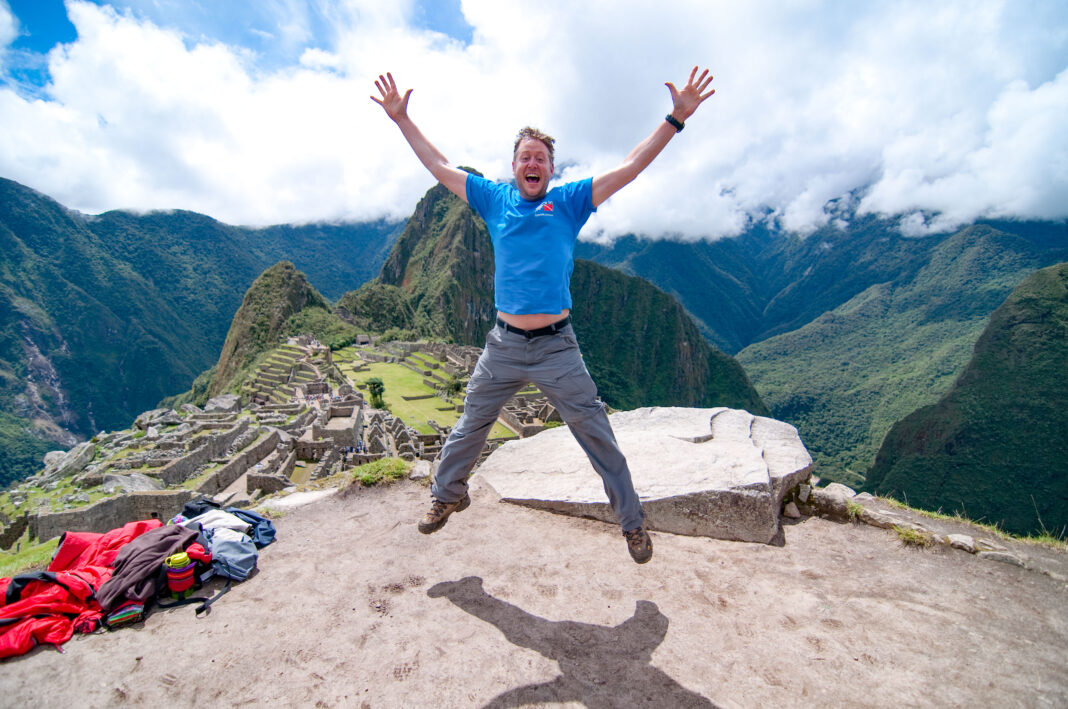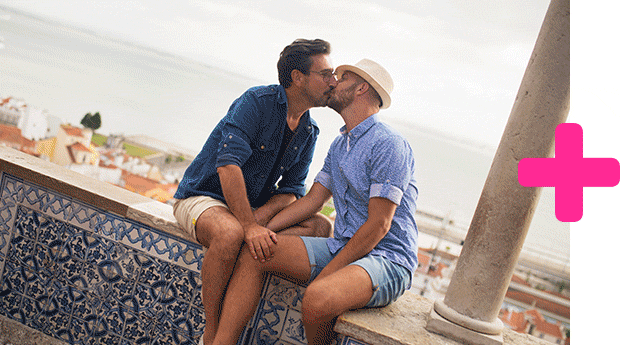I first met Toronto-based actor, screenwriter and photographer Christian Lloyd years ago in the only gay bar in Ao Nang, Thailand, a resort town beloved by Scandinavian families. “Aren’t you from Toronto?” he asked me while I was ordering a drink. He recognized me from Toronto’s Gay Village. It turned out that we were staying at the same hotel and that because I had arrived late, the hotel staff had almost given him my room—which I think had a better view. It’s a small gay world.
Since then, Lloyd has co-written the dark comedy Moments of Clarity and appeared in TV shows like The Handmaid’s Tale and American Gods, as well as the David Cronenberg film Maps to the Stars. He’ll next appear in the horror movie The God of Frogs, where he plays an asshole politician who gets possessed by a frog demon.
“I get pregnant and give birth out of my neck to tadpoles,” he tells me. “Yes, there’s a lot of makeup. But a lot of things happen to me internally before we see the eggs—there’s an argument I’m in, and I’m not aware what’s happening as my mind is being taken over, then there’s a really cool physical transformation. I’m really proud of the work. Most actors won’t say they’re proud of what they did in a horror movie, but I’m proud of it.”
As an artist, Lloyd plans many of his trips to be creatively stimulating. But he also sets some time aside for debauchery in cities like New Orleans. Wander+Lust asked him about his recent travels and that one item he always has to pack.
Where have you been lately?
A few years ago, I got this idea for a film that I’m writing, which takes place in Iceland. I thought, it’s one of the last places on Earth that people don’t really know about, outside of maybe knowing about Björk. Then over the last few years, it’s become this strange tourist place where you can go for two weeks and never bump into a local. It’s this natural wonder that’s been Disneyfied. I had just gone through a breakup, and it was the perfect time for me to write this sort-of love story that takes place in Iceland, at a time when I was questioning my own state of affairs. It was a solo trip—my entire trip was actively about not being around tourists. I took a four-by-four on what they call F roads, which are mountain roads that you can only go on for two months a year, and only in a four-by-four. I had experienced a lot of aggression and confusion in my own world, so driving up lava rock at 35-degree angles with zero deductible insurance was probably the best therapy I could have ever asked for.
One of the characters in my story is trying to scatter the ashes of someone they have this unresolved past with. It’s illegal to scatter ashes in Iceland. So I made my whole trip about searching out cool places to surreptitiously scatter someone’s ashes without anyone seeing. A lot of people don’t know this, but in Iceland, there are a lot of secret policemen, and surveillance cameras pretty much everywhere. Which is why I went on these mountain roads where I could drive for six hours a day and be the only person on them.
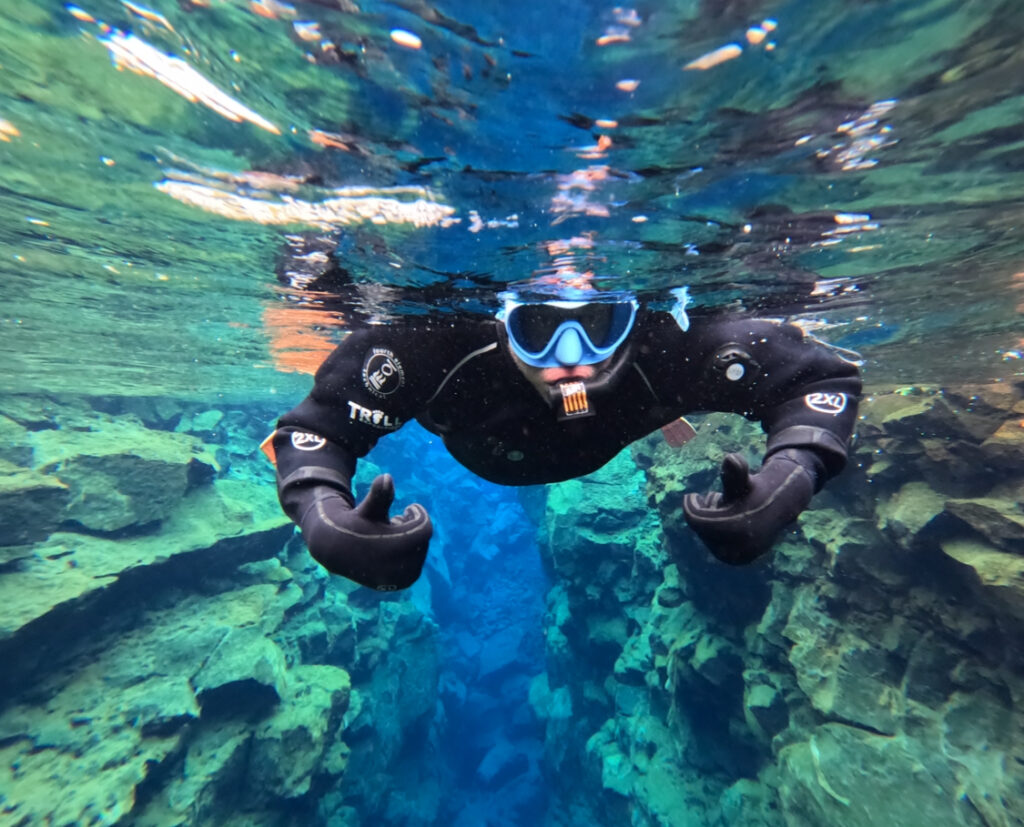
Where did you sleep?
I had a pop-up tent on my roof. A few years ago, Iceland outlawed stopping on the side of the road to camp, so now you have to go to assigned paid campsites around the island. Let’s say you arrive at two in the morning, at 8 a.m., someone will knock on your car with a little machine and you tap your credit card and pay for the night. Some of the campgrounds are quite luxurious, with swimming pools or natural springs. My favourite one was literally on this side of the ocean, in the Westfjords in northwestern Iceland.
Your next trip was New Orleans, which is pretty much the opposite of rural Iceland.
There’s a festival called Southern Decadence (annually on Labour Day weekend), which has been going for around 52 years now. It started in 1972, as a going-away party for a bunch of actors who were moving from New Orleans to New York, to become “legitimate” actors. They’d come back every summer dressed up as their favourite southern, decadent characters. Now it’s become a big party, very gay. It used to be decadent in terms of sexual freedom and expression—you know, flaunting things on the street. A debaucherous vibe that felt like an end-of-the-world party. Those days are gone, and it has become a bit more of a circuit party, with lots of parties at different venues instead of one big street party. But I still go.
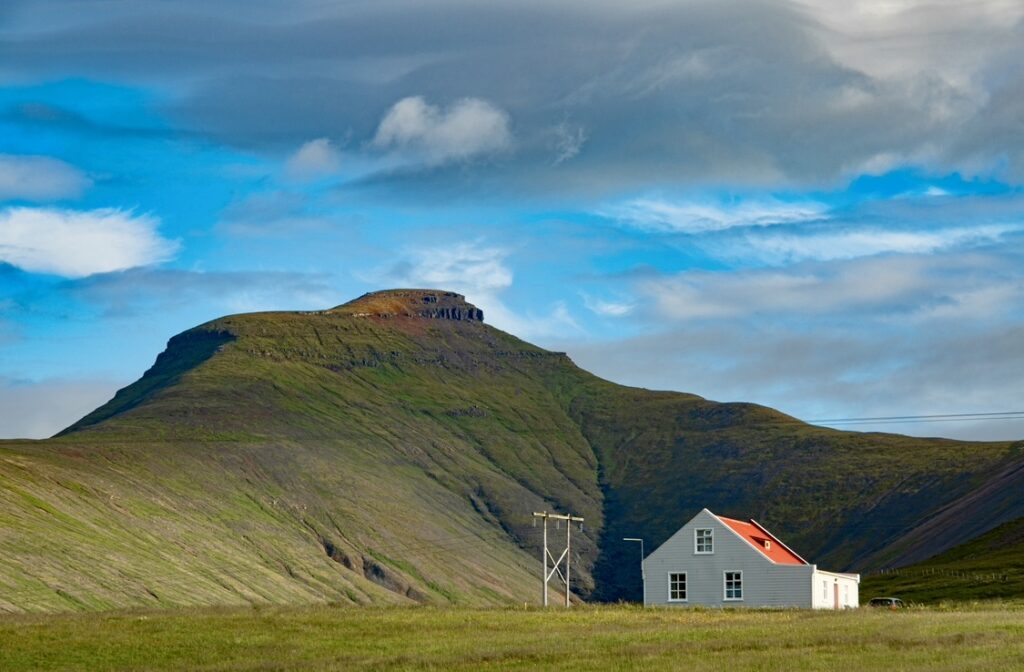
What makes New Orleans special for you?
In the 1960s and 1970s, there was this push from the city to essentially get rid of historic buildings and modernize. The queer community were the ones who basically said, “No, you will regret this.” I love that there are no franchises in the French Quarter. In the heart of the Quarter, everything’s family run, including some of the hotels, like Hotel Monteleone (214 Royal St., New Orleans), which is one of the most famous hotels. They host the Tennessee Williams & New Orleans Literary Festival (March 26 to 30, 2025). Then there’s the food. There are probably about 17 dishes that are iconic to that city alone. There’s the sense of southern hospitality, even though, weirdly, they don’t consider themselves the South. It doesn’t feel put on. There’s a sort of grit, a dirty underbelly to the city that’s genuine. People there genuinely care about your well-being. No matter what gender you are, everyone calls you baby.
What kind of person loves New Orleans, which is such a gay, social city, as much as Icelandic wilderness?
As I get older, I realize I am both an introvert and an extrovert. I enjoy going to countries that allow you to be an introvert. The Faroe Islands are a perfect example. There are only 50,000 people in the entire country, so when I went a couple of years ago, I was able to commune with nature. That’s the sort of travel that I want to do every year. I also want to learn something about another culture. Then there are times I just want to relax, and times I want to embrace the insanity of a street party.
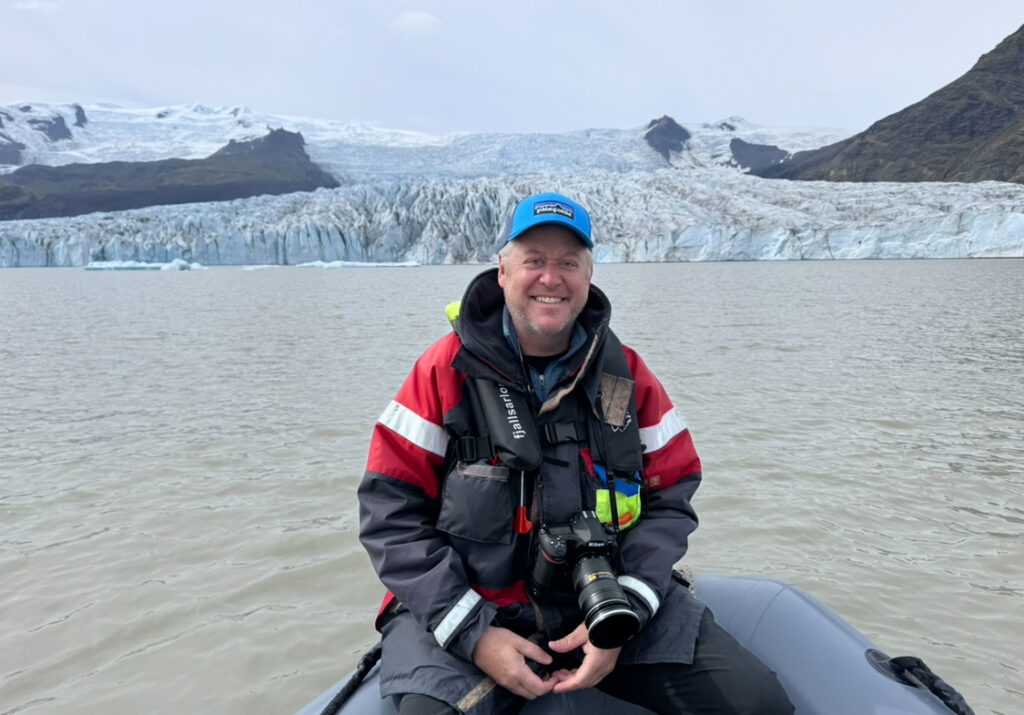
You’ve mentioned how being a screenwriter drives your choices of where to go. How does being a photographer direct your plans?
Sometimes I just look at places and think, “I really want to go there.” I want to have my own version of the photos I’m seeing. I want to look at the images on the walls of my living room and think, “I took that.” But then, when I was in New Orleans, I didn’t bring my camera.
Does being an actor play a part in your travel plans?
A friend of mine teases me, “How can you hate tourists when you’re a tourist when you travel?” Well, I like to give the illusion of being a local. Obviously, sometimes you don’t look like the locals, but then you go to Buenos Aires, and they have redheads who look Scottish, even though they’re speaking Spanish. When I was in Iceland, I had a sweater I bought in the Faroe Islands. Even though they’re distinct cultures, Icelanders think of the Faroe Islands as maybe a cousin to Iceland. So when I was wearing my Faroese sweater and a fisherman’s hat, people in Iceland started speaking to me in Icelandic. There was this moment when they took me as one of their own. When I travel, I want to know what the construction worker is having for lunch. I want to know how people in that city deal with heartbreak, what dating is like in that country. The more I can assimilate, the better. That’s me as an actor, wanting to figure out other people when I travel.
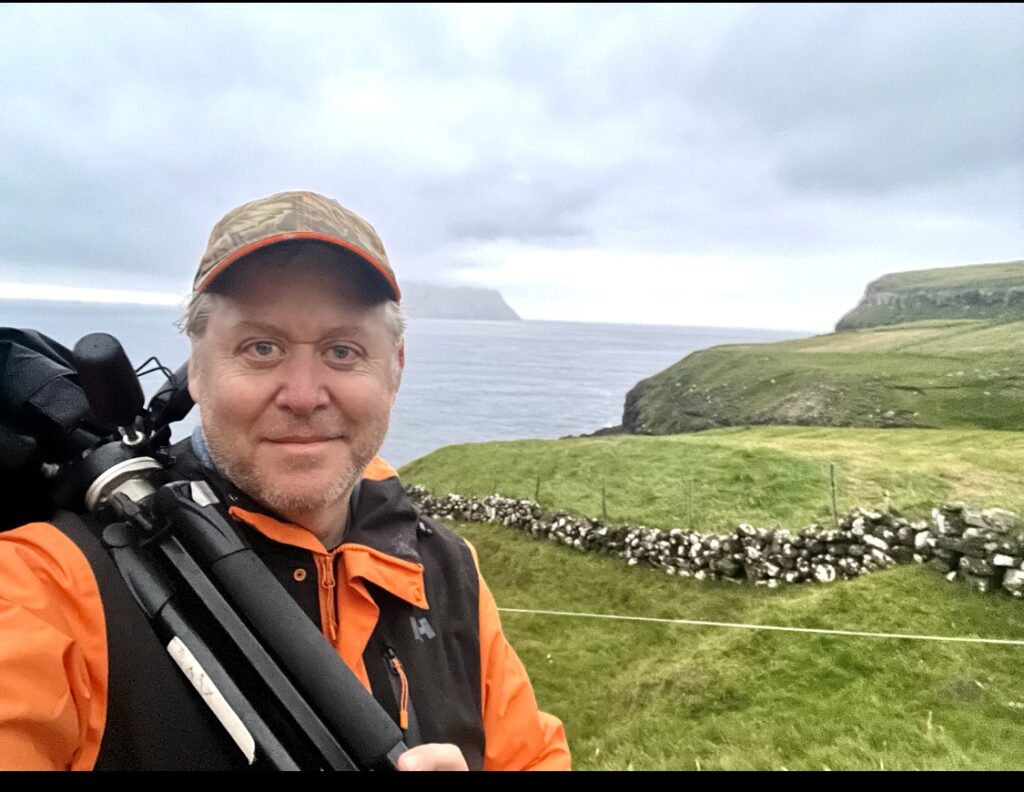
What are your strategies for connecting with other queer people, particularly other gay men when you’re in a different country?
For starters, if anyone is going to an island, like Iceland or the Faroe Islands or Cuba, don’t get excited by the number of people you’re finding on the apps because they’re on a cruise ship and are five kilometres offshore. I figured that out in Cuba, where I was seeing all these Americans, and I was like, “Where the hell are they?” They’re out on the ocean.
I find that when you choose remote travel destinations, people assume that you don’t want to be approached, which is very strange. I am an incredibly social person, but when you establish yourself as someone who quote-unquote doesn’t need anyone, people don’t approach you. That’s why I love travelling in the United States. Americans will chat with you until you bring up politics, and then it’s a terrifying thing.
Finding other LGBTQ2S+ people can be complicated. The Faroe Islands are actually quite conservative, very archaic in their views on marriage equality, which isn’t legal there. I was in a gay bar in Malaysia thinking, “This feels really normal and safe and calm. Yet, if we went outside right now, we could get arrested or worse.” I am curious to explore other cultures, but sometimes I’m just, “Let’s have a night of ABBA and some cocktails.”
When you’re packing for a trip, what is the one thing you always take with you?
I did a solo trip to Machu Picchu. I’m one of those people who just wants to veer left when everyone else goes right. So I did a seven-day trek, whereas most people do a four-day trek. I did this mountain range where I climbed up to 17,000 feet before linking to the Inca Trail to Machu Picchu. I was shopping for the trip at Mountain Equipment Co-op, and the guy was telling me, “You need this and this and this and this.” I said, “No, no, no, no, no. My guide has all that.” He goes, “What happens if something happens to your guide?” That is the most chilling thought. So I bought a heavy-duty first-aid kit, which I bring everywhere now. Of course, I didn’t bring it to New Orleans, because there was a CVS around the corner.
This interview has been edited for length and clarity.

